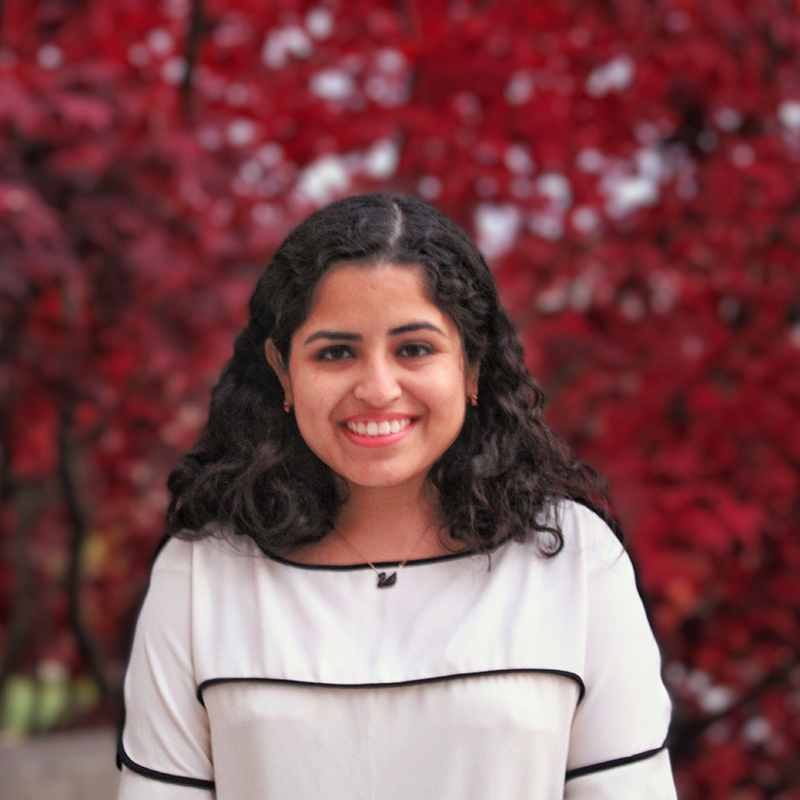Meet Shamayeta Bhattacharya, Ph.D., Assistant Professor of Community Engagement Thursday, October 13, 2022

"Point Park's Department of Community Engagement & Leadership provides the space to pursue and work on meaningful community engagement with an emphasis on engagement. I see students and faculty working hand in hand with the community."
When Shamayeta Bhattacharya, Ph.D., started looking into Point Park University, she felt drawn to the Rowland School of Business Department of Community Engagement & Leadership's commitment to both academic and non-academic community engagement.
"It's really rare to find that at other universities," she said. "As a scholar, usually when we're doing community engagement work, we're mostly thinking about writing papers together with community stakeholders and getting grants, but really, the engagement part is missing from those forms of academic conversations."
At Point Park, Bhattacharya found the exception to that rule.
Bhattacharya is a new assistant professor of community engagement at the University. She completed her Ph.D. at the University of Connecticut's Department of Geography and earned graduate certificates in human rights, as well as women’s gender and sexuality studies. Her research interests include health geography, LGBTQI studies and minority health.
"Point Park's Department of Community Engagement & Leadership provides the space to pursue and work on meaningful community engagement with an emphasis on engagement," she said. "I see students and faculty working hand in hand with the community."
In the Q&A below, learn about Bhattacharya's teaching style and interests.
Describe your approach to teaching.
Classrooms are diverse spaces, and so are my teaching methods. I cater to the specific needs of the students. If you sit in one of my classes, you'll get a mix of lecture, humor, fun, group discussion and activities that encourage students to visualize the concepts we're learning. I also do frequent check-ins with students. When I design my courses, I always set an overarching end goal – what is the main takeaway I want students to gain from a course? I channel all the lessons and assignments into achieving that. My teaching style is customized to each learner and goal-oriented.
What does community engagement mean to you?
I really like the Centers for Disease Control and Prevention's definition, which describes community engagement as a process of working collaboratively to address issues affecting the well-being of people. It is a powerful tool for bringing about changes in different forms that help mobilize resources, influence systems and improve relationships among groups. It serves as a catalyst for changing policies, programs and practices. Additionally, my own individualized understanding of community engagement is really thinking about how to engage with communities to achieve long-term, sustainable outcomes and relationships that help facilitate decision-making. The engagement part of it is very important to me. Engagement comes out of the principle that community members have a right to be informed, consulted, involved and empowered in all the decision-making taking place. When we link community to engagement, it broadens the scope and process of thinking from thinking individually to thinking collectively, which allows us to incorporate greater inclusivity and diversity.
How do you incorporate your research experience into the classroom?
My research supports what I call the "example bank." I am currently teaching a methods course, and I continusouly draw examples from my own research to show students the applicability of methods in the real world. I also share the challenges I face while doing my own research. By sharing my real-world experiences with students, I ensure they learn how to apply the material in their own careers.
What do you want students to know about you?
I am here for them whenever they need me. My scholarly background makes me an expert in giving them academic advice, but they can also talk to me if they just want to talk. I'm all ears if they just want to stop by and say hi or vent their frustrations. I'm happy to give academic advice, and I'm all ears if they just want to talk.
What are your hobbies and interests?
My constructive hobby is cooking. I try cooking a variety of cuisines, and that really helps me with my meal prepping. I love exploring culture, so I also travel a lot. A distractive hobby of mine is Netflix. I watch all sorts of movies in all different languages. Some of the best shows I've watched recently are "Atypical" and "Anne with an E." I also really liked "Becoming," Michelle Obama's documentary.
What are you most looking forward to exploring in Pittsburgh?
I am really interested in exploring the local bakeries to satisfy my sweet tooth. Also, since Pittsburgh is really a city of bridges and I am a geographer, I want to document my experiences traveling across as many bridges as possible and learn about as many as I can.
Learn more about the Department of Community Engagement & Leadership in the stories linked below:
- Where Can We Go?" Public Restroom Study Provides Community Engagement Students with Hands-On Research Experience
- Department of Community Engagement & Leadership Welcomes New Cohort with Symposium and a Service Project
- Ph.D. in Community Engagement Alumna is an Advocacy and Program Manager with the National Coalition for Cancer Survivorship
More About: community engagement, Ph.D. in community engagement, Rowland School of Business, faculty, faculty research, Pittsburgh, Downtown Pittsburgh

